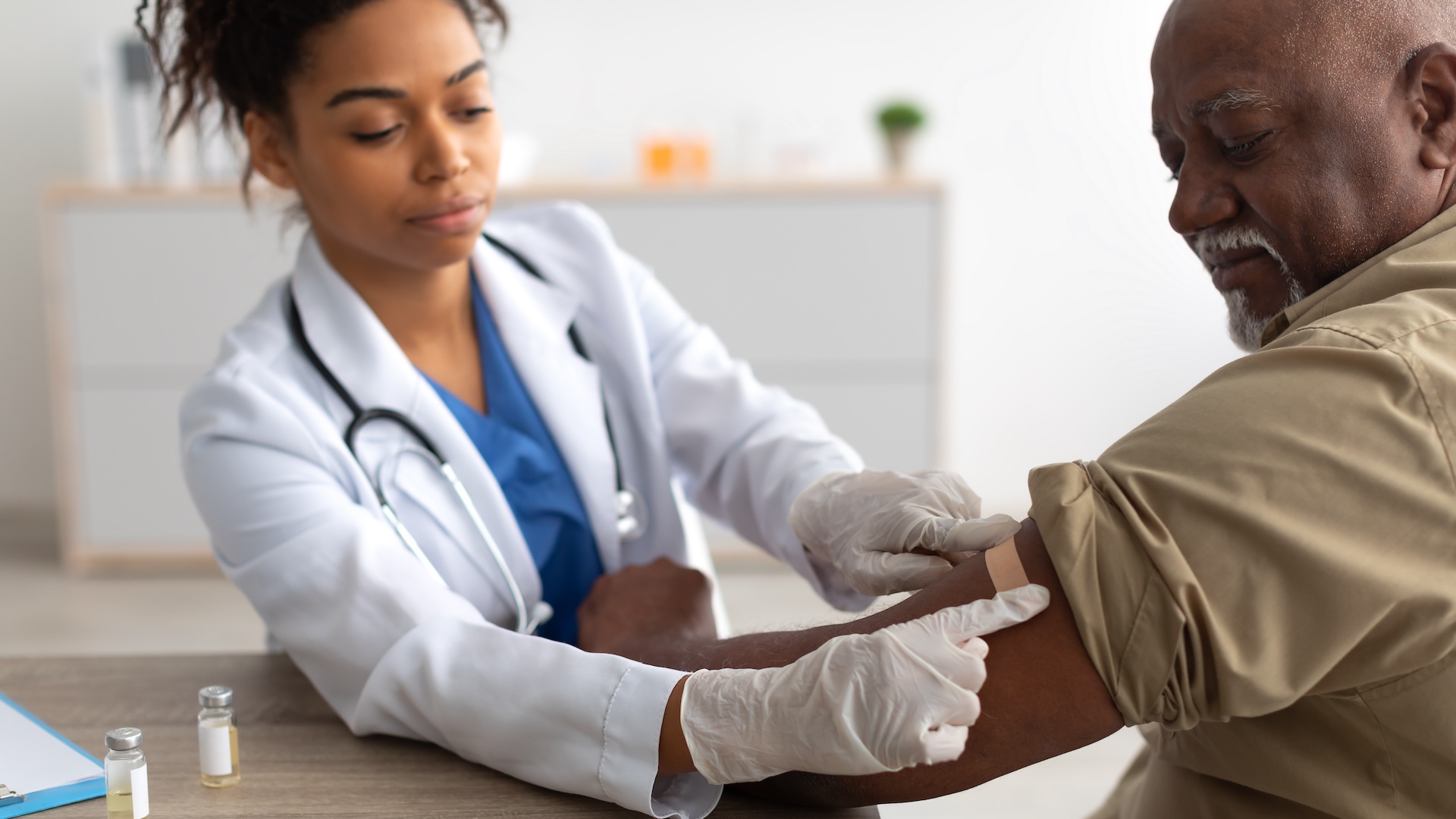CDC issues new guidelines for RSV vaccines, citing side-effect concerns
The CDC has clarified and narrowed its recommendations for which older adults should get an RSV vaccine.

Get the world’s most fascinating discoveries delivered straight to your inbox.
You are now subscribed
Your newsletter sign-up was successful
Want to add more newsletters?

Delivered Daily
Daily Newsletter
Sign up for the latest discoveries, groundbreaking research and fascinating breakthroughs that impact you and the wider world direct to your inbox.

Once a week
Life's Little Mysteries
Feed your curiosity with an exclusive mystery every week, solved with science and delivered direct to your inbox before it's seen anywhere else.

Once a week
How It Works
Sign up to our free science & technology newsletter for your weekly fix of fascinating articles, quick quizzes, amazing images, and more

Delivered daily
Space.com Newsletter
Breaking space news, the latest updates on rocket launches, skywatching events and more!

Once a month
Watch This Space
Sign up to our monthly entertainment newsletter to keep up with all our coverage of the latest sci-fi and space movies, tv shows, games and books.

Once a week
Night Sky This Week
Discover this week's must-see night sky events, moon phases, and stunning astrophotos. Sign up for our skywatching newsletter and explore the universe with us!
Join the club
Get full access to premium articles, exclusive features and a growing list of member rewards.
The Centers for Disease Control and Prevention (CDC) has narrowed its recommendations for which older adults should get a vaccine against respiratory syncytial virus (RSV). It now states that only adults 75 and older, or those ages 60 to 74 who are at high risk, should get the shot.
That's partly because the vaccine may slightly increase the risk of a rare side effect that can sometimes lead to paralysis or death.
RSV circulates seasonally and hospitalizes 60,000 to 160,000 older adults in the U.S. each year. An estimated 6,000 to 10,000 people in this age group die due to RSV infection annually. The first-ever RSV vaccine was approved last year, and a total of three have now been approved for use in people ages 60 and up: GSK's Arexvy, Pfizer's Abrysvo and, most recently, Moderna's mResvia.
Initially, the CDC said all adults ages 60 and older could get one dose of one of these RSV vaccines after discussing it with their doctor.
Related: FDA approves 1st RSV vaccine for use in pregnancy to stop infection in newborns
Now, "based on currently available evidence," the CDC's Advisory Committee on Immunization Practices has concluded that the benefits of RSV vaccination do not clearly outweigh the potential harms in adults ages 60 to 74 who don't have risk factors for severe RSV. However, people in this age range who do have risk factors could still benefit.
With that in mind, "providers should continue to have flexibility in offering RSV vaccine to patients they assess to be at increased risk for severe disease even if they do not fall into an explicitly named risk category," the CDC noted in a Morbidity and Mortality Weekly Report published Tuesday (Aug. 6).
Get the world’s most fascinating discoveries delivered straight to your inbox.
Thus, people ages 60 to 74 can still consider the shot if they are at high risk of severe RSV infections. That would apply to people with chronic heart disease or a weakened immune system, as well as those who live in long-term care facilities such as nursing homes.
Adults who have already received an RSV vaccine "should not receive another dose," the report notes.
The updated recommendations were issued because of higher-than-expected rates of Guillain-Barré syndrome (GBS) tied to the vaccines. GBS can cause tingling, numbness and muscle weakness and sometimes progress to paralysis. In severe cases, the condition can affect muscles that support breathing and thus be life-threatening.
The GSK and Pfizer RSV vaccine trials in older adults hinted at this elevated risk. However, the trials were too small to confirm that the shots themselves increased rates of GBS. Now that the shots have been in wider use for about a year, a clearer picture has emerged: The rate among vaccine recipients is higher than the expected background rate of GBS in this age group.
For a vaccine with no associated risk of GBS, you'd expect to see about 2 cases per 1 million doses administered, whereas the Pfizer vaccine was tied to about 5 cases per 1 million, Live Science previously reported.
Thus, data suggest that the overall risk of developing the condition is still quite low, but this slight bump in risk was still a factor experts weighed when reevaluating their vaccine recommendations.
(Notably, there wasn't an uptick in GBS in the trials of Moderna's RSV vaccine — but that shot has only recently been approved, so wider surveillance hasn't yet been conducted.)
The new CDC guidelines don't tell people to discuss the risks and benefits of the shots with their doctors. Now, the recommendations are explicitly based on age and on known risk factors. Especially for people ages 75 and older, the benefits are clear, the CDC argues.
The previous recommendations were less direct, and doctors found them "confusing and time-consuming" to implement, the report notes. As a result, RSV vaccine coverage was similar for adults with risk factors and for those without, whereas ideally, at-risk populations would see higher rates.
As of spring 2024, an estimated 20% to 25% of U.S. adults ages 60 and older had received an RSV vaccine.
This article is for informational purposes only and is not meant to offer medical advice.
Ever wonder why some people build muscle more easily than others or why freckles come out in the sun? Send us your questions about how the human body works to community@livescience.com with the subject line "Health Desk Q," and you may see your question answered on the website!

Nicoletta Lanese is the health channel editor at Live Science and was previously a news editor and staff writer at the site. She holds a graduate certificate in science communication from UC Santa Cruz and degrees in neuroscience and dance from the University of Florida. Her work has appeared in The Scientist, Science News, the Mercury News, Mongabay and Stanford Medicine Magazine, among other outlets. Based in NYC, she also remains heavily involved in dance and performs in local choreographers' work.
 Live Science Plus
Live Science Plus










